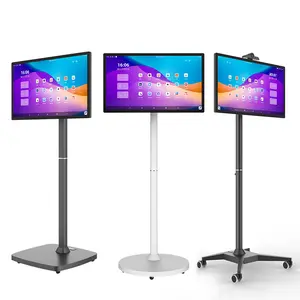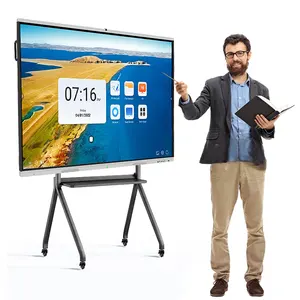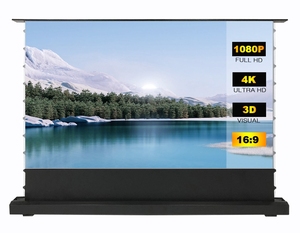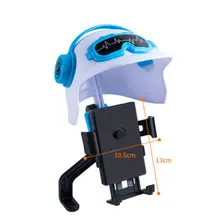Exploring Projection Screen Varieties
Projection screens are essential components for displaying images for an audience, whether it be for a corporate presentation or an outdoor movie night. The projection screen market caters to a diverse range of environments, each with its specific requirements and challenges.
Types of Projection Screens
The type of projection screen selected can greatly impact the viewing experience. Fixed frame screens offer a permanent display solution, ideal for dedicated viewing areas. Portable screens provide flexibility and are suitable for transient needs, such as presentations or temporary setups. Motorized screens, which can be retracted when not in use, offer convenience and a clean aesthetic. Each type serves a unique purpose, tailored to the setting and the audience's needs.
Materials and Features
The material of a projection screen plays a pivotal role in image quality. Matte white screens are common, providing a wide viewing angle and uniform brightness. High-contrast screens enhance darker colors, suitable for environments with controlled lighting. The gain of a screen, or its reflectivity, also affects brightness and viewing angle. Features such as black backing and borders can improve perceived contrast, while acoustic transparency allows for speakers to be placed behind the screen without compromising sound quality.
Applications of Projection Screens
Projection screens are utilized in various settings, from educational institutions requiring large, clear displays for classrooms to businesses needing reliable screens for conference rooms. Outdoor screens have gained popularity for events, capitalizing on their portability and ease of setup. Home theaters are another common application, where the cinematic experience is enhanced by a high-quality projection surface.
Advantages of Quality Projection Surfaces
A well-chosen projection screen can significantly enhance image clarity, color saturation, and overall viewing pleasure. The right screen can mitigate ambient light issues, provide a smooth, flat surface for accurate image reproduction, and resist wear and tear for long-term use. Understanding the advantages of various screen types ensures an informed decision can be made to match the specific needs of any venue or event.
Selecting the Right Projection Screen
Selecting the appropriate projection screen involves considering the environment, the projector's specifications, and the intended use. It is crucial to assess the aspect ratio, screen size, and material to ensure compatibility with the projected content and to achieve the best possible image quality. With a comprehensive range of options available, finding the right screen is a matter of aligning these factors with the user's requirements.












































 浙公网安备 33010002000092号
浙公网安备 33010002000092号 浙B2-20120091-4
浙B2-20120091-4